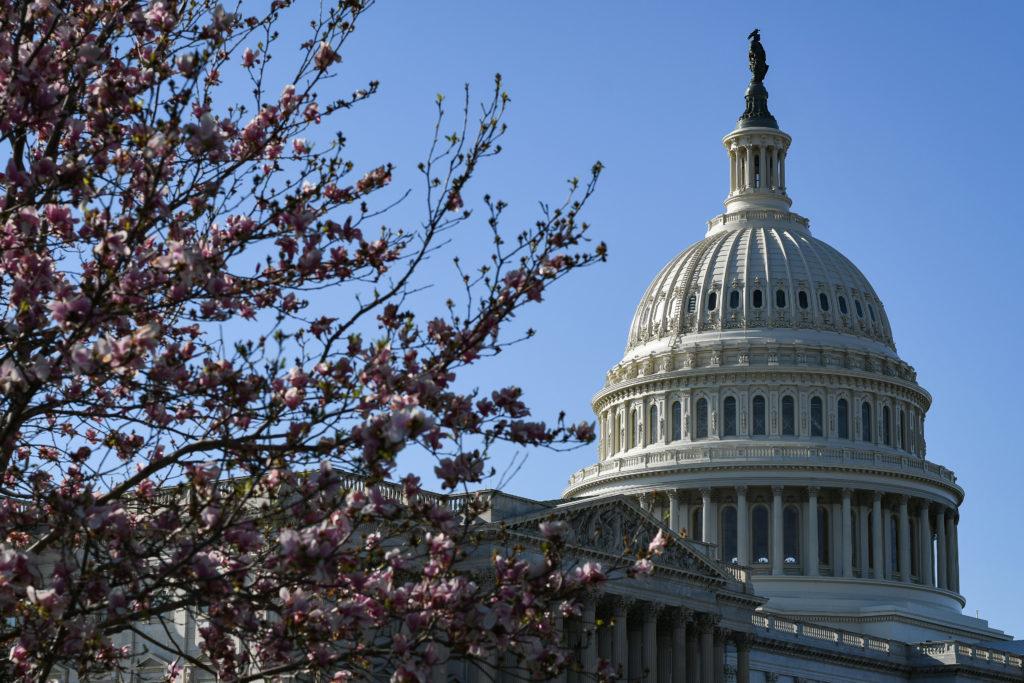Students could soon have access to more affordable textbooks after the federal government set aside money to expand freely available course materials.
President Donald Trump signed a $1.3 trillion spending bill last month, which included $5 million for a pilot program on open educational resources that would give grants to universities to offer free textbooks. The University’s top library official said the pilot program is a “major victory” for students because it will likely make open textbooks more readily available nationwide, including in GW’s libraries.
The Department of Education will present details on how the pilot program will be implemented in the coming months. Funding will be available to universities once the program starts, but the start date has not yet been determined and the bill only includes seed money without laying out how the project will work.
Geneva Henry, the dean of libraries and academic innovation, said she hopes the grants from the program – to be created by the education department – will give guidance to faculty about publicly available textbooks and create more free materials for students. Faculty sometimes struggle to find open-source textbooks locally and then don’t integrate them into their courses, she said.
“Open textbooks are a proven alternative to traditional textbooks,” Henry said in an email. “Because the textbooks are openly licensed, any material created through the grants, regardless of institution, will be freely available for use by anyone.”
The University launched its own textbook sharing program last summer for students in high enrollment classes and require expensive textbooks. The project was developed by the Student Association and allows students to borrow a physical copy of a textbook from the library for two hour periods.
“All the really inventive tactics that students have come up with over the years, these tactics won’t work anymore.”
Henry said the GW’s libraries has been working on initiatives to create more free course materials for years and administrators and staff try to help faculty to find open textbooks they can use in their courses.
SA President Peak Sen Chua said the “Top Textbooks” program has saved students $20,000 so far this academic year, according to a report on the project. He said federal funding will emphasize the importance of affordability for students and that this issue “continues to be a multifaceted issue at all universities.”
“Faculty will be empowered to prioritize affordability and the student experience through creating OER [open educational resources] or by working with the GW librarians to customize their own course materials,” Chua said.
Officials can potentially provide school-wide grants to create more open educational resources for faculty in general, Chua said.
Kaitlyn Vitez, the director of the Campaign to Save Student Aid at the U.S. Public Interest Research Groups, a progressive advocacy organization, said PIRG projects the $5 million pilot program will save millions of dollars for students across the country in out-of-pocket costs for class materials.
She said it’s becoming harder for students to buy used books or have books passed down from older peers because many textbooks are constantly being updated and now require access codes.
“All the really inventive tactics that students have come up with over the years, these tactics won’t work anymore,” Vitez said.
She said the rising costs of higher education make affordable textbooks a priority, and those out of pocket costs can hurt students struggling to pay for their education. Students spend an average of $153 per course on textbooks, according to a PIRG study.
Affordability has been a major focus of student leaders this year. An SA affordability report released last month found GW is more expensive than most of its peer schools in several areas of everyday costs, including laundry and health care.
GW can also benefit from the program because students can afford to take more classes if they aren’t spending as much money on textbooks, she said.
“It’s important to recognize that this victory of getting the $5 million is the work of a lot of students and librarians.”
The National Association of College Stores signed a letter in January to support the open educational resources, arguing that open textbooks don’t necessarily hurt profits because those stores still sell other items.
Nicole Allen, the director of open education at Scholarly Publishing and Academic Resources Coalition – a group that promotes open access to research and knowledge – said faculty are often unaware that open textbooks are even available and typically use them in their courses.
Allen said $5 million won’t be enough to save students money in one fiscal year, meaning that students and faculty must continue to advocate more affordable class resources in upcoming fiscal years.
“It’s important to recognize that this victory of getting the $5 million is the work of a lot of students and librarians,” she said. “And Congress listened.”





